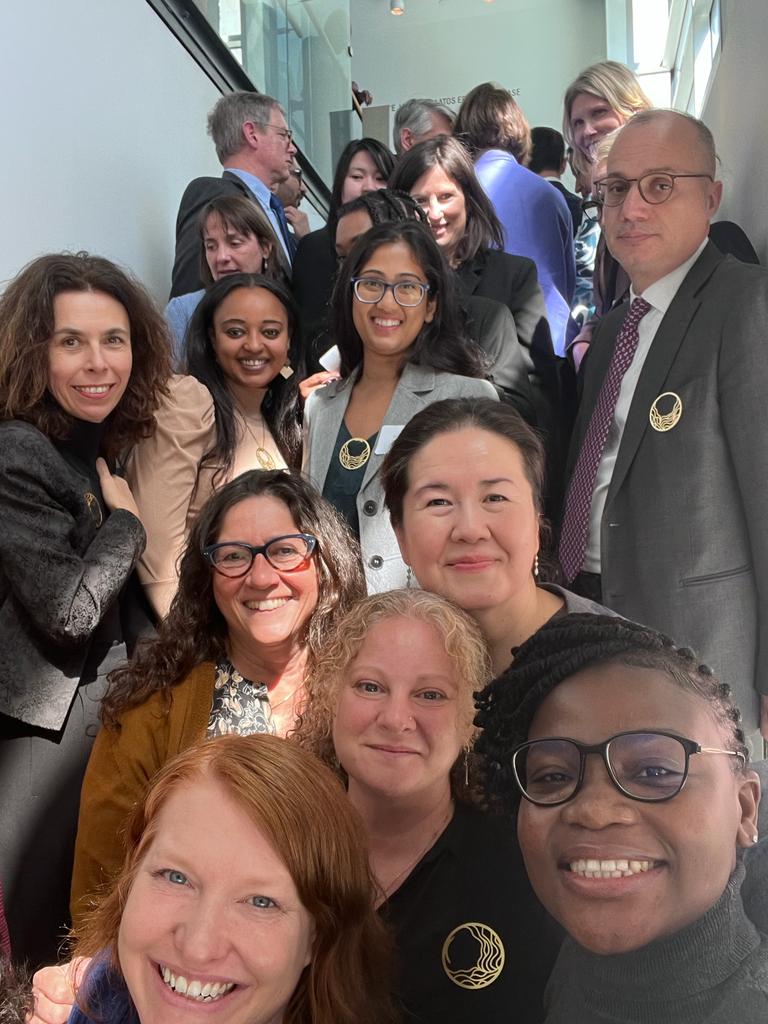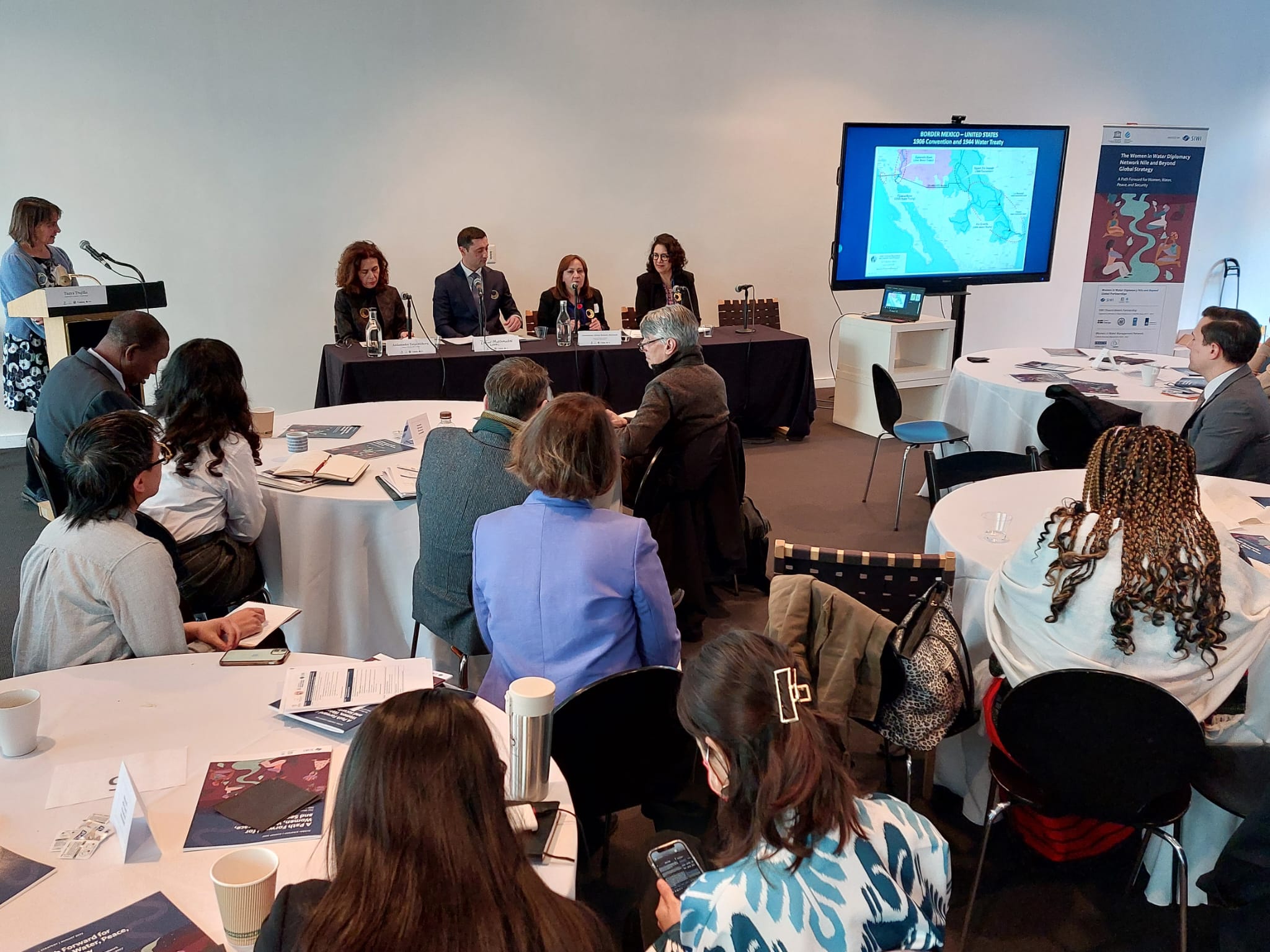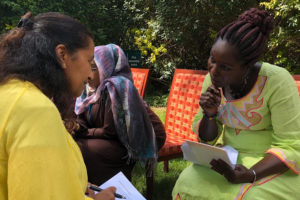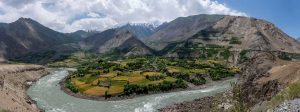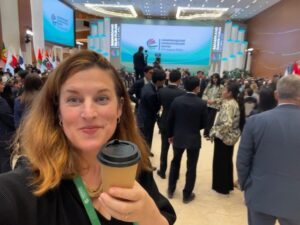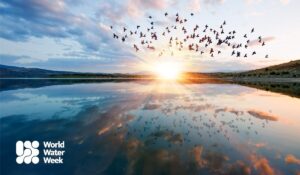The 2023 Water Diplomacy Symposium convened in advance of the UN Water Conference
Article abstracted from Koch, Elizabeth and Ekta Patel, et al. 2023. Women in Water Diplomacy Network After Action Report: The Water Diplomacy Symposium and Network Engagement in the 2023 UN Water Conference.
Article available in full here.
The March 21, 2023 Water Diplomacy Symposium was convened by the Women in Water Diplomacy Network in partnership with the Environmental Law Institute (ELI), the Stockholm International Water Institute (SIWI), the International Joint Commission (IJC), the Lincoln Institute of Land Policy, and the University of Arizona Water Resources Research Center. The Symposium served as the focal engagement for the Network at the UN Water Conference providing space and opportunity for extended dialogue and interactions among assembled water diplomats attending the UN Water Conference. Over 80 people participated in the Symposium, including Network members, experts, and supporters from the Nile, Central Asia-Afghanistan, the Americas, Europe, and Asia, as well as representatives of government agencies and development organizations such as the Ministry for Foreign Affairs of Finland, Ministry of Foreign Affairs of the Netherlands, the Swedish International Development Cooperation Agency (SIDA), the United States Department of State and Department of the Interior, the Regional Environmental Centre for Central Asia (CAREC), the Organization for Security and Cooperation in Europe (OSCE), and the World Bank, among others. The specific objectives of the Symposium were to enable networking, foster partnerships, and encourage information exchange amongst the formal and informal water diplomats attending the UN Water Conference, with a focus on critical themes related to transboundary basins globally, and water insecure and conflict sensitive basins in particular. Further the Symposium sought to particularly elevate voices of women water diplomats, Indigenous leaders, and young water professionals – all communities often excluded from high level water diplomacy dialogues – and emphasize the critical value of a diversity of voices in advance of the high-level policy dialogues and events taking place at the UN Water Conference. The Symposium particularly served to build relationships and foster partnerships across the growing Women in Water Diplomacy Network and community of supporters and partners ensuring strong engagement at the Network events throughout the UN Water Conference program and side events.
The Water Diplomacy Symposium provided a critical opportunity to collect feedback and inputs into the Network’s engagements. Approximately 50% of Symposium participants provided input into the Symposium’s evaluation, offering significant and valuable feedback on the Symposium as well as future Network engagements. Responses indicated that the diversity of experience, regions, and scales of engagement of the water diplomats attending the Symposium was extremely valuable with many comments indicating the particular value of listening and learning from the many Indigenous experts who shared experience during the Symposium, with one respondent indicating that ‘I was very impressed with the diversity of speakers and participants and found the insights of the Indigenous leaders extremely valuable.’ While 75% of respondents indicated that their participation in the Symposium provided opportunity to increase professional knowledge of key issues related to water diplomacy, gain new ideas to support inclusive water diplomacy processes and approaches, share stories and peer learning, and provided an enhanced feeling of community and shared mission, 83% indicated that the event provided positive energy and enthusiasm, and 91.7% received new valuable connections through networking with the assembled participants. Many expressed gratitude and value for the comradery experienced during the Symposium with feedback such as: ‘‘I have always been a women’s rights advocate. Learning about this network opened my eyes and allowed me to see that we are stronger if we are together and that we are stronger if we support each other. Thank you so much for the opportunity to join the Symposium and the network.’ In addition to new expert contacts, many survey respondents indicated that their participation exposed them to new tools and approaches, ‘I feel better equipped to understand the roles of women in water governance and diplomacy.’
About the network
The Women in Water Diplomacy and Water Management promotes promotes women water professionals’ participation in decision-making in the water sector and gender mainstreaming in water governance, inthe Nile region and Central Asia and Afghanistan.
The Women in Water Diplomacy network in the NileWomen in Water Management in Central Asia and Afghanistan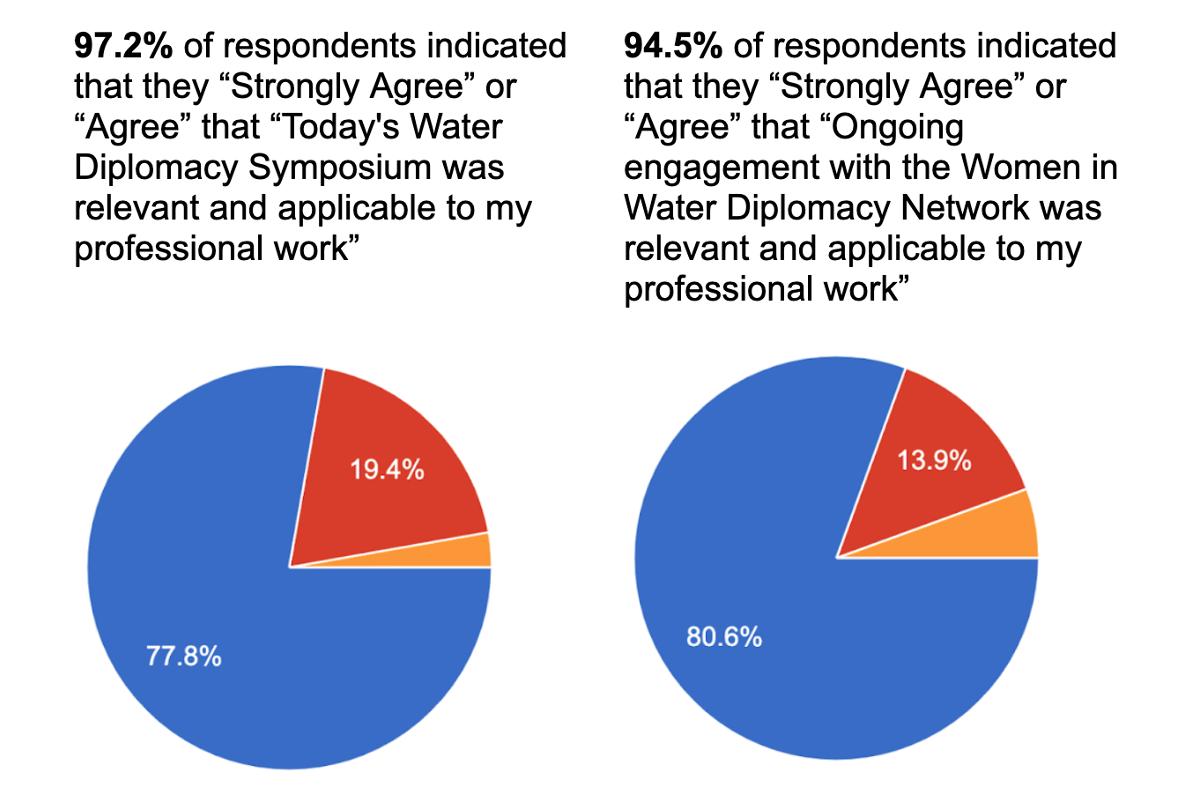
Many respondents indicated the value of both the formal program sessions as well as the informal breaks, ‘The atmosphere of the event contributed to the platform of different voices in the global fora. The event facilitated connection and camaraderie that supports participants going into the UN Conference and engenders even greater support to representation in decision making. This is a great example of how to build momentum and impact!’ When asked to elevate aspects of the Symposium participants would change almost all respondents requested more time for discussion with several noting the need for a larger venue. Respondents likewise offered up specific ways in which they would report back and share their experience with their communities and networks such as, ‘I would like to write a note reporting on the Symposium and main takeaways in Spanish, so that I can share the message with my peers.’ Overall, survey respondents also expressed thanks to the consortia of co-convenors for enabling the experience exchange opportunity such as ‘‘A great use of my time!! Thanks to all the organizers,’ and ‘Keep up the amazing work! Happy to contribute the best way I can. This is the most empowering professional community I’ve ever had a chance to participate in.’ Further details on the results of the Symposium’s evaluation and participant feedback can be found in Annex 1.
